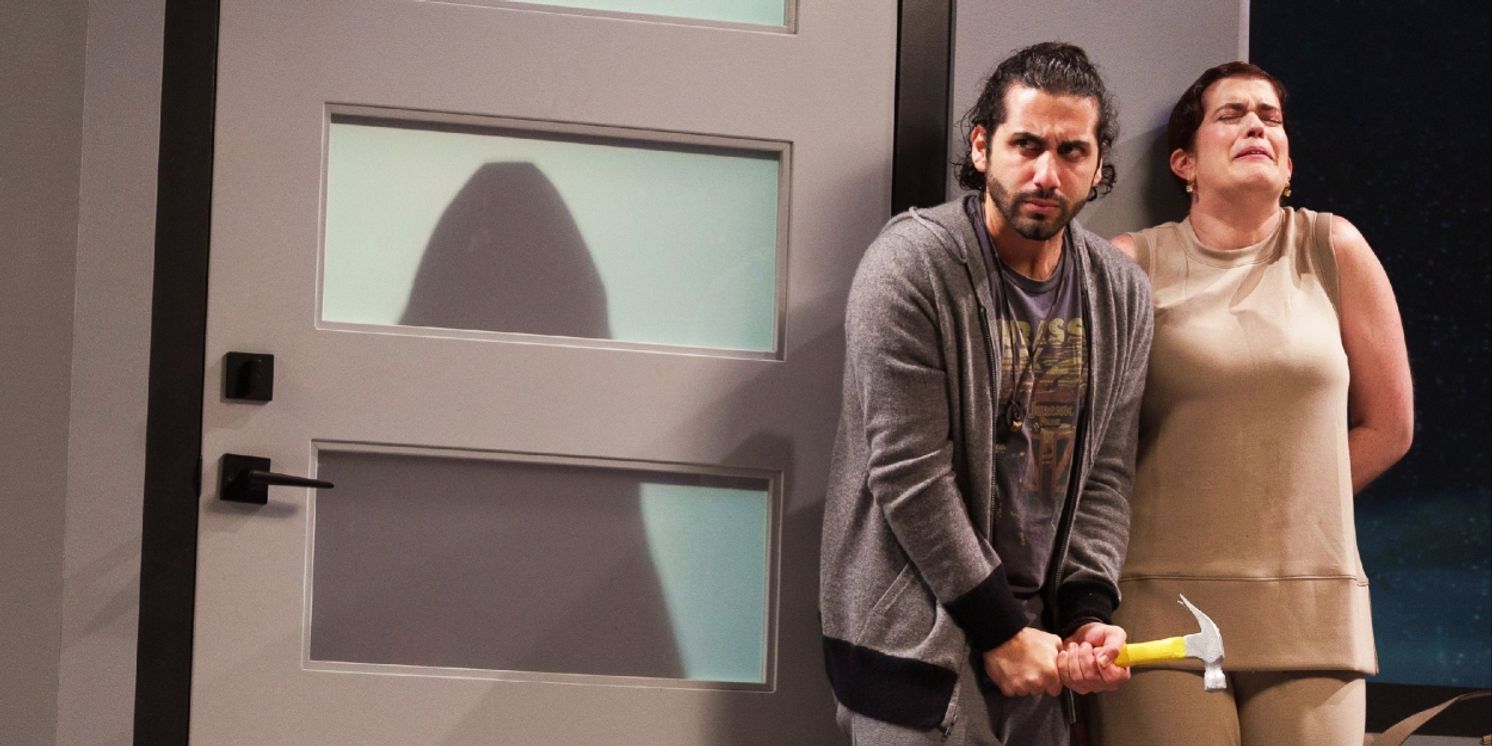Review: THE ANTS at The Geffen Playhouse
The scariest thing about this "horror play" is the lack of thought in its societal critique

Sitting through Ramiz Monsef’s The Ants at The Geffen Playhouse is a disquieting experience. Although billed repeatedly as a “horror play” (there are a few moments of suspense and a smattering of jump scares) it is disturbing in its nearly total lack of dramatic tension. The effect of seeing this text performed by a theatre with the resources of The Geffen is that of watching an Olympian volleyball team lob a deflated beach ball back and forth— no skill or training could make this futile project a success.
The characters are flat, non-malleable illustrations of belief systems that are backed by all of the snub-nosed social critique of an Instagram infographic. The jokes all boil down to tired pastiche about vegans, kale, and alternative milks. The commentary all boils down to a vague displeasure with capitalism that hasn’t quite articulated anything beyond the system being bad. Arguments compose the majority of the dialogue, but they never build anywhere— or they never build anywhere engaging. Characters simply repeat what they want over and over at increasing volumes: “Open the door.” “No.” “Open the door.” “No.” “Open the f***ing door!” “No!” And the whole evening feels amateur.
We’ve seen the home successfully employed as a metaphor in societal critique. Bong Joon Ho’s Parasite springs to mind, as do the surprisingly astute films of The Purge franchise. Disney Channel warned us of the foreboding dangers of technology with their Smart House, and decades earlier, Ray Bradbury’s There Will Come Soft Rains sent a similar message. Just as with the characterizations of the people, Monsef seems to rely on convenience to dictate the capabilities of his high tech safe house. The rules of how the house work are very muddy. When convenient, a passcode is needed to activate commands. Other times, a simple gesture will suffice. Ultimately confusing, the house succeeds only as the facade of a metaphor because the meaty societal critique needed to justify its existence and foundation are not present.
This has the potential to be a very harmful play. With tickets starting at $39 (and ranging to $129— absolute extortion) there is a self-selecting group of Angelenos with the privilege to access this work. I was appalled to see a fantasy of homeless people and hourly workers city-wide joining together to seek revenge against the rich framed as an inevitable horror. The program tells us the “Setting/ Time” of the action is “The city. Soon.” When the throngs of impoverished storm the building toward the end of Act 1, it was uncomfortable to see the ticket holders around me squirm in fear. The poor are dehumanized, relinquished to the role of the antagonists in Alfred Hitchcock’s The Birds. Though the play draws connections to The Night of the Living Dead, the analogy to The Birds feels more appropriate. Zombies are entirely fictional— a horror creation. The Birds preys on ornithophobia, the very real and surprisingly common fear of birds, on top of the fictional instance of a global bird uprising. The Ants preys upon the irrational but pervasive societal fear of the unhoused, and it fails to condemn and examine that fear, instead exploiting and stoking the flames.
Though an interview in the program assures us Monsef has had friends who are unhoused, he shows his hand when the leader of “the ants” explains to a Rich Woman, “we just want to be seen.” Maybe I’m putting too much stock on the word “just” in that sentence, but the insinuation that the people struggling the most under the violence of capitalism desire to be “seen” or represented or even deemed valid by those who benefit most from the system feels trite, dismissive, and disconnected from reality.
Hana S. Kim’s projections are beautifully overwhelming in tandem with John Nobori’s sound design. This is a new play that feels like it could not have a life outside of LA, but that might be a good thing. In my diagnosis, this play is the epitome of what we don’t need to be producing right now.
Reader Reviews

Videos

